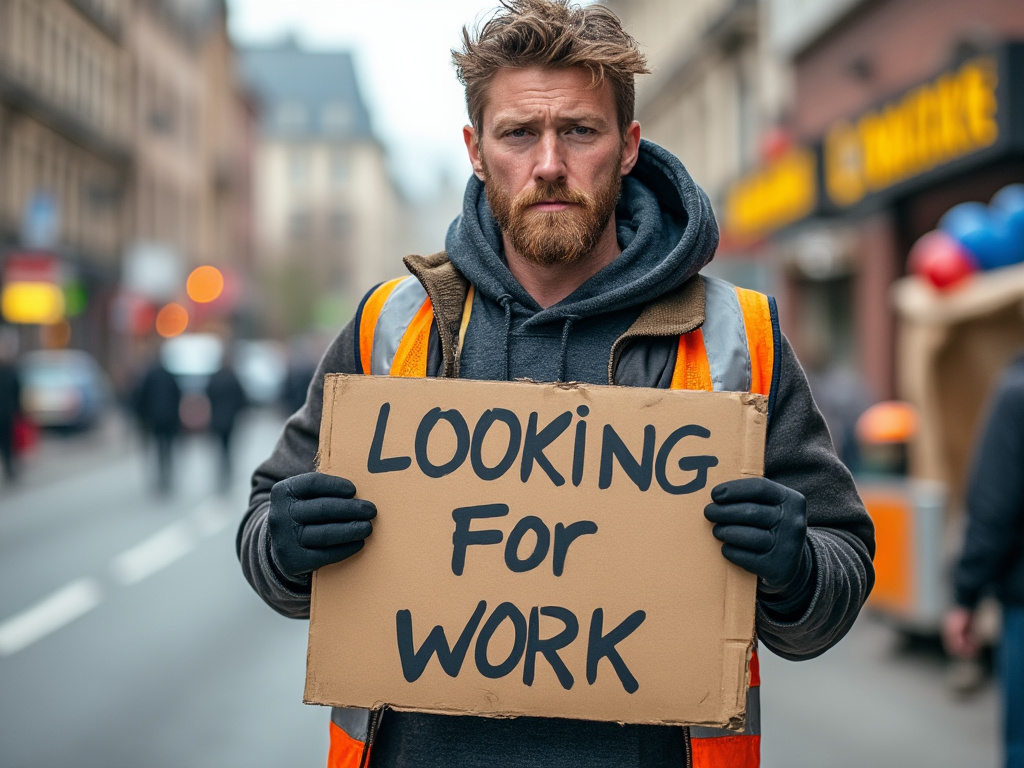The AI Revolution and Its Human Cost: Where Are the Safety Nets?
I am passionate about AI and its incredible potential. I fully support the development of AI and the opportunities it offers to benefit us all. However, AI must be developed inclusively, with strong ethical considerations. One area of deep concern for me is society's lack of preparation for the AI-driven future we are being promised.
Why Is This A Concern?
Because there are ZERO safeguards in place!
Recently, I’ve been following Klarna, the Swedish fintech unicorn, which is at the forefront of AI innovation. Klarna has already reduced its workforce from a peak of 5,000 employees to 2,800, and they are now considering further cuts, potentially down to 2,000, with the help of AI. Klarna’s CEO, Sebastian Siemiatkowski, is all in on AI and closely monitors his departments to ensure their roles and responsibilities are being turned into requirements for the development team to automate. This is deeply troubling because, as more companies adopt AI and jobs become redundant, society remains unprepared. There is zero safety net—absolutely none.
The Klarna example is not an isolated case. Cisco has let go of 5,600 people this year to focus on AI, and there are more companies doing the same. We’re only scratching the surface of what’s to come. AI is advancing rapidly, and as companies increasingly prioritize automation, mass layoffs will inevitably follow. But where does this leave the workers? How will they transition to new careers, or even survive financially in an AI-dominated economy?
The Fragility of Our Workforce: Who's Next?
It’s not just customer service reps, warehouse workers, or truck drivers that are at risk. Developers, the very people building these AI systems, may also face redundancy. If history has taught us anything, it’s that technological revolutions tend to outpace the job market's ability to adapt. In fact, AI development itself could soon become a job for AI with self-training models and self-optimisation.
Developers are, in some ways, sowing the seeds of their own obsolescence. AI models can already write basic code and develop more efficient algorithms—what happens when they surpass human developers? As more industries rely on machine learning, the need for human programmers may diminish and the labour market is already seeing a receding of Software jobs. This raises a sobering ethical question: Are we racing to develop technologies that will ultimately displace ourselves?
And here's the dilemma—people aren't developing AI out of malice or disregard for others; society has us by the balls we have families, children, and bills to pay. The drive for financial security forces individuals to work on innovations that could render their own roles obsolete. Society traps us in this bind, where personal livelihood becomes a driver of collective vulnerability.

The Empty Promises of Cost Reduction and Efficiency
Proponents of AI often argue that automation will lower the cost of goods and services, making life more affordable for everyone. But does this really align with the reality we're seeing? Take Klarna as a case study. They report a 25% reduction in marketing and sales costs, but that "efficiency" comes largely from laying off employees, not from AI-driven innovation.
Moreover, large language models (LLMs) like those that power ChatGPT or other AI systems are not cheap to run. They require immense computational resources, energy, and specialised infrastructure. Even if some operational efficiencies are gained, those savings are unlikely to translate into significantly lower consumer prices—at least not in the near future. Companies, particularly large ones, are more likely to reinvest these savings into developing proprietary AI systems for privacy and intellectual property reasons, further widening the gap between those with the resources to leverage AI and the everyday people left scrambling to find new jobs.
The harsh truth is that AI is replacing jobs, and it will continue to do so. This leaves us grappling with a critical question: What’s the solution?
Universal Basic Income: A Solution or a Pipe Dream?
Some propose Universal Basic Income (UBI) as a potential answer to mass unemployment caused by AI. The idea is simple—provide everyone with a guaranteed income, regardless of employment status. It sounds appealing on paper, but is it truly feasible?
Consider the current economic landscape. We haven’t even solved the homelessness crisis in many countries. How would we fund a UBI? I’m no economist, but the math isn’t mathing. Most government revenue comes from taxes paid by working- and middle-class citizens—the very people who are most at risk of being replaced by AI. If they’re out of work, who funds the UBI? And can we rely on corporations to fill the gap, especially when they’ve historically shown more interest in maximizing profits than in supporting social welfare?
OpenAI ran a study providing 3,000 individuals with a $1,000 stipend each month for over a year. These participants were living 300% below the poverty line. The outcomes were promising—many participants reported improved financial stability, mental health, and overall well-being. However, this was a small-scale experiment, and it doesn’t address the bigger picture. How do we scale this to entire populations? Where’s the evidence that governments could fund a meaningful UBI without devastating other social programs or creating unsustainable debt?
Moreover, UBI comes with its own complications. Who decides the amount? What if the UBI figure ends up being significantly lower than what individuals earned before AI made their jobs redundant? A fixed income may stabilize some households, but it could also trap others in financial stagnation, particularly those who had higher salaries and lifestyles built around them.
The Need for Government and Corporate Responsibility
It’s clear that we need a comprehensive plan for the future—a safety net that goes beyond vague promises of AI-driven prosperity. Governments need to take AI seriously and implement policies that prepare society for large-scale job displacement. This means expanding retraining programs, enhancing unemployment benefits, and possibly even rethinking labour laws to accommodate the evolving job market.
Corporations also have a role to play. They cannot wash their hands of social responsibility by simply pointing to increased profits or improved efficiency metrics. If they are replacing jobs with AI, they should invest in supporting displaced workers through severance packages, retraining programs, and community support initiatives. The age of AI shouldn’t be just about profits; it needs to be about people, too.

Sounding The Alarm
AI will transform our society—there’s no stopping that. But we must demand that the transition is handled ethically and inclusively. Governments need to step up, corporations need to be held accountable, and we, as individuals, need to push for answers. Right now, we're already seeing a flatlined labour market and job losses caused by AI, and the safety nets are nowhere to be found. “Desperate” tags are appearing on LinkedIn; it’s gotten so bad.
We are on the brink of an AI revolution, but without the right safeguards in place, the cost of that revolution could be our very livelihoods. Now, more than ever, we must ensure that the future of work or what comes after, includes everyone.